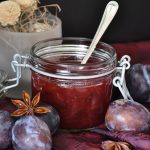As the third most important global food crop, potatoes have got everything you need to survive – but could they also help fight illness and alleviate pain?
That’s the question a scientific project aims to answer. A multi-national consortium including the James Hutton Institute is carrying out a four year €8.5 million survey.
The project will investigate the potential of naturally occurring chemicals in potatoes, tomatoes and saffron to combat human diseases such as cancer and arteriosclerosis and ease the pain caused by various ailments.
It also hopes to find sustainable ways of producing these chemicals known as bioactive compounds.
The EU funded DISCO project has also investigated bioactive compounds sourced from other plants such as aubergine, saffron, crocus and freesia.
Project co-ordinator Professor Paul Fraser of the Royal Holloway and Bedford New College, said: “Despite notable scientific achievements there have been relatively little commercialisation or feasibility studies performed to date on the production of bio-compounds from renewable sources.
“Therefore one of our major objectives within DISCO is to address these issues and to create a framework that can act as a generic pipeline capable of taking discovery and innovation through application and validation, to translation and industrial valorisation.”
The DICSO partners which include 15 organisations from seven countries, aim to capitalise on their experience in metabolic engineering and bring technology to the market.
Professor Derek Stewart of the project added “Building on our expertise in potato research we will work to mine the wonderful diversity of natural compounds in potatoes for a whole range of bio-activity against a range of degenerative conditions as well as for pain relief.”





